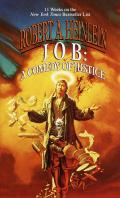"Star Trek: Picard" season ends in disappointment
"I read once that a commander has to act like a paragon of virtue. I never met a paragon."
"Neither have I."
—Eve McHuron and Captain Kirk, "Mudd's Women"
It's been a week now since the first season of Star Trek: Picard came to a close and I've almost gathered my thoughts about it. They're a bit muddy and uneven. It started out so well—or, at least, it set up some great plot elements with terrific dialogue and character writing. And as things progressed through the ten-episode run, it built on them nicely—until they stopped.
The final few episodes were just a letdown. Not entirely; there's good stuff in all of them, but there's also some lazy maguffiny stuff. More importantly, some of those really interesting setups were just resolved with a throwaway line of dialogue or ignored altogether. It's like they hit episode 6 and then realized that they were past the halfway mark and oh crap now what do we do with all this stuff?
It's extra disappointing because Michael Chabon was the showrunner and I love Michael Chabon. Brilliant novelist. Great with characters. Knows his Star Trek. And yet this kind of fell apart. Star Trek: Discovery also suffered from some of this same kind of trouble in its first two seasons, though, and there is a common element on the staff: Executive producer Alex Kurtzman. Is it his fault? Maybe. But I always default to blaming him because he worked on the J.J. Abrams movies, which cared not a whit for what makes Star Trek good.
Picard sets up these big issues in its premise, with the Federation having abandoned their rescue/relief mission to save their historical enemies the Romulans from the Romulan system's impending supernova, a decision made at least in part because of a massacre at a Mars shipyard by android laborers. The fallout from the massacre included a ban on all synthetic lifeforms, something Jean-Luc Picard, of course, vehemently opposes. The abandonment of the mission and the synthetic ban lead to his resignation from the fleet and a lot of personal drama and trauma. So when none of this is satisfactorily paid off, it's a humongous failure of the writing staff.
The android attack was, unsurprisingly, engineered by secretive paranoid Romulans even though it harmed their own interests. This is pursued and builds to the greater threat that the season hinges on, all great, but then the resolution is a big nothing. The secret paranoid Romulan anti-android cult is not only not satisfactorily explained—they basically just come off as stupid dupes enthralled by ancient stories—but as they are about to wipe out the android population at the secret hiding world, deus ex machina appears in the form of Acting Captain Will Riker and a fleet of UFP ships that intimidate the Roms into simply retreating, and then they leave too, apparently never to return, which makes zero sense. But this confrontation is apparently all it takes for the Romulans to give up on their zealotry and for the Federation government to rescind their now-15-year ban on androids when they wouldn't hear of it before, and we get no details on it. It's just an expository line of dialogue, "oh, and the ban is lifted, so all is good now!" Say what? How?
Where's the dramatic scene that shows how the government overreaction played into terrorism and was self-defeating, providing a valuable lesson to be learned about not abandoning principle out of fear and ignorance? I'm not saying we need a hit-us-over-the-head teaching moment ala "Let That Be Your Last Battlefield," but this was supposedly the underlying theme of the whole season. From Picard fighting Starfleet and his government on their bad decisions to seeking out the sleeper-agent-type android Shoji to exploring the victimhood of the Borg and the potential redemption (and exploitation) of the XBs (ex-Borg) to the myriad references to our beloved Mr. Data, it's not unreasonable to expect the story to resolve itself around this theme. Instead we just got some big action stuff (along with one truly brilliant and touching scene of character depth), a bit of a troubling introduction of a new technological and storytelling element that will in a broad sense have to be ignored lest it completely change Federation culture (much like J.J. Fricking Abrams did with magic blood reversing death in the abominable Star Trek Into Darkness), and all the loose ends and forgotten plot points.
I gather from stuff I read on Twitter, that infallible source of reality and facts, that the Riker scene was a late change. It was supposed to have been Admiral Clancy, who we saw Picard argue with in the early episodes, that came to the rescue and that, perhaps, might have mitigated some of the lost opportunity issue with the fleet and government having to acknowledge and rectify their errors. Or not.
Sigh. I have high expectations for my Star Trek. And this show had a lot going for it, not the least was Chabon and his gift for character and dialogue—which were well used, no doubt; I loved (for the most part) the episode set at the Riker/Troi home. But pacing the plot, creating drama by needlessly killing characters off (RIP Hugh, loads of XBs, Maddox), working in more needless death in the form of Riker and Troi's deceased son (killed by a disease made incurable only by the synth ban—what? dumb), just ignoring the broader ramifications of your whole theme... Fucking Kurtzman. (I will continue to blame him until there's evidence pointing elsewhere.)
I gripe because I care. I love Star Trek, I want it to live up to its own high standard, and when it fails it's a blow.
Oh well. At least this show isn't Voyager.


